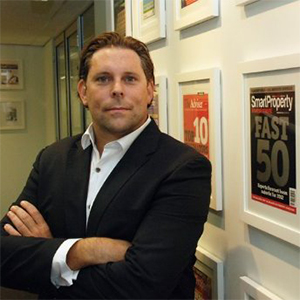BLOG: Why being in touch with your numbers is the gold in your portfolio
In addition to the Smart Property Investment portfolio, editor Phil Tarrant also has his own, personal retail super fund. He shares why these two different portfolios highlight the importance of being in touch with your numbers.

I’ve talked about my retail super fund before on the Smart Property Investment Show, so I don’t want to go into too much detail, but this latest financial year, I got a pretty reasonable return. I saw 8 per cent. The year before was 6 per cent. But the year before that was 0.1 of a percentage point, which I was pretty beefed about.
Now, keep in mind this is my personal portfolio, not the Smart Property Investment portfolio.
I was looking at my fund the other day (I’m looking to roll over the cash into the super fund so I can do some things with it), and it cost me about $4,500 a year to hold my retail fund. So, that is the fees I pay to the fund management company for the privilege of them managing my money, and last year they gave 8 per cent. That’s great (I’m being slightly sarcastic).
But the $4,500 it cost me to hold this asset, which, in value, is much smaller than the total cost of the value of any of the properties in, for example, Smart Property Investment. It’s a smaller asset size. But it cost me $4,500 a year to hold it.
I look at the Smart Property Investment portfolio that we report on (and it does have holding costs because of how it’s structured), and the strategy we’ve had in building that asset around equity growth, and now we’re looking at the cash flow position. And it’s probably half the price for me to hold each individual property in the Smart Property Investment portfolio than what it is to actually have my money in a retail fund.
How? With the benefit of leverage. I’m getting, at best, 8 per cent. If I average that out over the last three years, I’m probably getting 2 per cent less, whereas I’m getting the leverage on investing in property at half the price of holding costs. So, I’'m probably getting a 500 per cent better return that what I’m getting on my super fund.
Now, I’m not going to beat up super. I think there’s a place for it, and I hold some insurance in that super fund, so that’s all cool, but I sometimes feel like walking into this fund manager, and grabbing the CEO by the scruff and neck, and saying: “Mate, get your people to do their job properly, because you’re not performing right now.”
I try not to think about it too much sometimes. But you know what? I haven’t done anything about that. It’s still sitting there, so I’m partly responsible for it.
What does this have to with the Smart Property Investment portfolio? Well, this is my self-rationalisation about the holding costs with the Smart Property Investment portfolio. Yes, it costs us money to hold them (we share those numbers here on Smart Property Investment), but it got better because we’re going through this process of reassessing our mortgage rates, fixing some loans, taking some costs out of it.
It’s looking a lot better right now, but you know, I got a whole bunch of letters the other day from banks deciding to do to out-of-cycle rate rises.
It’s getting even more expensive to hold it because of interest going up. We try to mitigate that a little bit by fixing some rates, which is a smart move.
That’s working for us, and I highly recommend having an assessment of your own portfolio. You might have interest-only rates expiring, which will add 30, 40, 50 per cent to the repayment.
The bottom line is: While an increase in rates wouldn’t have that same cash flow effect, I think being in touch with your numbers is where the gold is.

